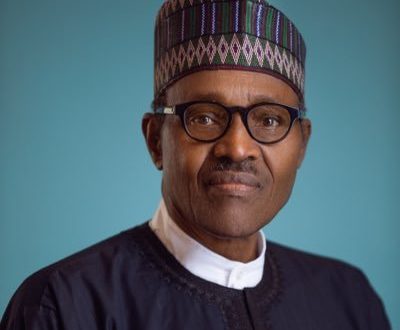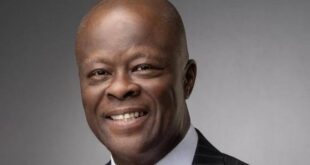President Muhammadu Buhari says his administration has set Nigeria on the right track as Africa’s leading fertiliser producer.
Buhari made the disclosure on Tuesday at the State House in Abuja, while receiving the Executive Committee of Fertiliser Producers and Suppliers Association of Nigeria.
In his address, the President noted that this remarkable achievement, had, within a short time, ensured a steady flow of investments to the sector from the private sector, opening the portal of auspicious dividends for millions of Nigerians and foreign investors.
He said, “With our over-seventy blending plants operating, Nigeria is on its way to becoming Africa’s fertiliser powerhouse. And with our mega Urea production facilities, Nigeria is definitely a global player in the Urea space.”
Whilst commending the FEPSAN for its collaborative efforts with the government in promoting the agricultural value chain, Buhari expressed optimism that the era of persistent shortage of fertiliser across the country had now become a history.
‘‘So we went to work. And as the Chairman of FEPSAN mentioned in his remarks, the rest is now history,’’ he said.
The President also cited the combative measures taken so far to curbing over-dependence on imports, ensuring the availability of the commodity, with a view to attaining self-sufficiency in food production in the country.
He said, “When this administration came to office in 2015, our focus was on three key areas: security, economy, and (tackling) corruption.”
‘‘For every nation to have peace and prosperity, its economy must be inclusive.
‘‘For Nigeria, a predominantly agrarian nation, having an inclusive economy meant we needed to prioritise the enhancement of our agricultural value chain.
‘‘We quickly identified the persistent shortage of fertiliser as a key reason for the low yields experienced in our farms.
‘‘This historical scarcity of fertiliser was due to our over-reliance on imports and the inefficient participation of the government in distributing this essential commodity to the farmers,” Buhari noted.
According to the President, it became incumbent on his government to enforce a reversal of the status quo ante, as the nation is naturally blessed with the necessary wherewithal including most of the raw materials it needs to mass-produce fertilisers.
‘‘Nigeria has all the skills and manpower required to convert these raw materials to fertilisers,” Buhari affirmed, adding that with the right enabling environment, investors from around the world would savour the yearnings to invest in the agricultural sector.
The President noted that the country had experienced no shortages of fertilisers during the global COVID-19 stricture, saying this was an indicator of his regime’s integrated policies.
He said, ‘‘Today, I am pleased to hear your assurances that we will not have any shortages in Nigeria because of the Eastern European conflicts that have impacted the global fertiliser trade.”
“All these trends indicate our backward integration policy was the right policy,” Buhari noted.
In his remarks, the CBN Governor, Godwin Emefiele, said fertiliser remains pivotal to achieving and sustaining food security, just as the apex bank continued to hinge on its availability and accessibility by farmers to improve yield, productivity and ultimately agricultural output.
Highlighting some CBN’s interventions, including the Real Sector Support Facility; Commercial Agriculture Credit Scheme; National Food Security Programme, and the Presidential Fertiliser Initiative, Emefiele said a total of over N114.09bn had been disbursed to support the fertiliser industry over the last five years.
He explained that the interventions were long-term loans at concessionary interest rates to booster domestic blending and distribution across 36 states of the federation.
He also said that the bank was partnering with major investors in the industry, such as Dangote and Indorama, to ensure that they sell Urea at discounted prices to the blending plants for a streamlined market prices of the commodity.
‘‘The Bank will equally work with the blending plants to ensure that the blended fertilisers are made available to end-user farmers at affordable prices,’’ Emefiele assured.
On CBN Anchor Borrowers’ Programme, the CBN boss said it had disbursed the sum of N941.26bn to 4.2m smallholder famers cultivating 21 agricultural commodities on 5.4m hectares of land across the country, adding that for the 2021 wet season programme, the CBN disbursed N193.59bn to 923,699 farmers cultivating seven commodities on 1.16m hectares of land.
In his response, the FEPSAN President, Thomas Etuh, commended President Buhari for the inauguration of two facilities by members of the association: Barbedos blending plant in Kaduna, and the Dangote Urea plant in Lagos – all within a two-month period.
Etuh said, “Mr President, FEPSAN’s success is not only evident by the number of factories we commission, but also by the many pyramids of rice, maize and other crops you have been inspecting across the country.
‘‘Mr President, before you created the PFI Initiative in 2016, Nigeria’s fertiliser production base was almost zero; we had less than seven companies producing at 10 per cent of their installed capacity. Nigeria’s Urea output was reported at less than 300,000 tons,’’ he said.
The FEPSAN president further observed that Nigeria had recorded its highest consumption of fertilisers at 1.8m tons per annum in 2021, citing recent data from a fertiliser working group that reviews and validates consumption data spanning over 12 years.
 The Commerce Africa African Reneissance
The Commerce Africa African Reneissance


